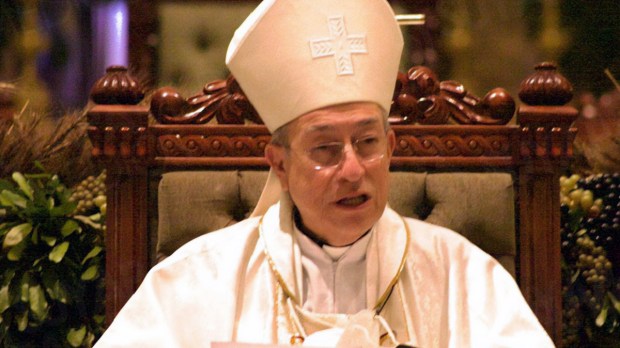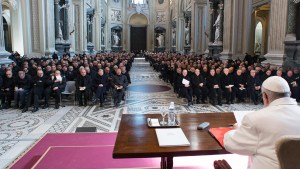“There is a latent strike in the Curia, in response to the reform carried out by the Apostolic Constitution Praedicate Evangelium,” said Cardinal Oscar Rodriguez Maradiaga, coordinator of the Council of Cardinals, in an online meeting organized by the Spanish-language website Religión Digital and reported on 3 June 2022. Contrary to expectations, no appointments have yet been published since the new organization of the Roman Curia took effect on June 5, the day of Pentecost.
The “government reshuffle” expected on June 6 did not take place, as no curial appointments appeared in the daily bulletin of the Holy See Press Office.
However, Pope Francis’ meeting that same day with the heads of the new Dicastery for Divine Worship, which includes the future Cardinal Arthur Roche, suggests that there has been a tacit renewal of this dicastery. This will probably also be the case in other institutions such as the Dicastery for the Clergy, whose prefect, Archbishop Lazzaro You, will also be created a cardinal at the end of the summer.
The situation is more confusing for institutions that are supposed to no longer exist in their previous form, such as the Pontifical Council for Culture, headed by Cardinal Ravasi, or the Congregation for the Evangelization of Peoples, headed by Cardinal Tagle, which is to be integrated into the new large Dicastery for Evangelization, personally headed by the Pope. The announcements expected in the coming days will be carefully scrutinized.
The delay in announcing the appointments and the confusion that surrounded the publication of a still provisional version of the Apostolic Constitution on March 19 suggests that roadblocks persist. Cardinal Maradiaga, coordinator of the Council of Cardinals, did not hide his impatience during his intervention organized by Religión Digital.
“The text is already there, but the official translation has not yet been published, which is worrying,” said the Honduran cardinal, denouncing a “strike” implicitly led by members of the Curia who are opposed to the reform and who, while avoiding frontal opposition, “are taking it easy, waiting for the Greek calendar.”
Changes to come in the Curia’s personnel
“With the same people, the Constitution cannot be put into practice,” Cardinal Maradiaga said, suggesting that there will be a large turnover in the Curia in the coming weeks.
He acknowledged that the realization of the Constitution will be more difficult than its mere entry into force, because it requires “a new spirit that needs a pastoral and synodal conversion and also that it permeates the diocesan curia.” “This is why the Pope has summoned all the cardinals in August,” said the coordinator of the Council of Cardinals.
“We must move away from clericalism and move towards a Church of brothers,” insisted Cardinal Maradiaga
“We must move away from clericalism and move towards a Church of brothers,” insisted Cardinal Maradiaga, pointing out some concrete progress already noted, such as the 17% increase in the number of women employed in the Vatican since the beginning of the pontificate.
Cardinal Maradiaga recalled that following the preparatory meetings for the conclave and the election of Pope Francis in 2013, the pontiff had given him the mandate “to open Pandora’s box” and thus to set in motion a profound reform of the Curia. Some aspects of the reform have made good progress, notably in bringing the economic and financial norms of the Holy See into line with international law. But changing mentalities will still take time, he acknowledged.
In this online dialogue, Colombian theologian Consuelo Vélez raised another point, rarely discussed: the protection of certain jobs by Italian laws, which is “an additional problem given the number of people employed in some dicasteries.”


